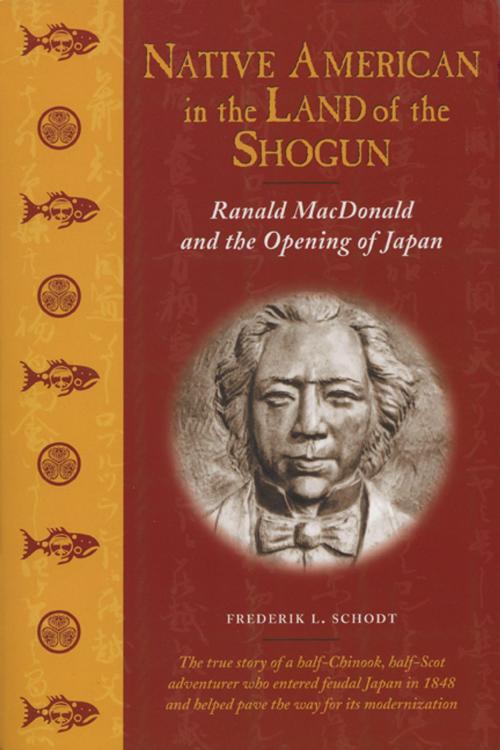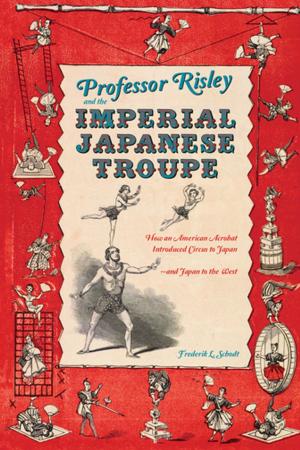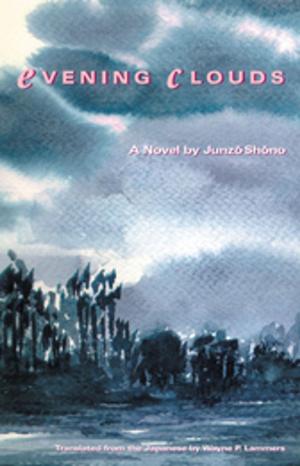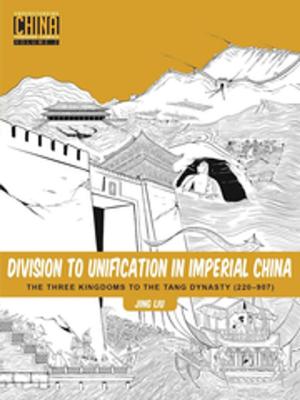Native American in the Land of the Shogun
Ranald MacDonald and the Opening of Japan
Nonfiction, Social & Cultural Studies, Social Science, Cultural Studies, Native American Studies, History, Asian, Asia, Biography & Memoir| Author: | Frederik L. Schodt | ISBN: | 9781611725414 |
| Publisher: | Stone Bridge Press | Publication: | June 15, 2013 |
| Imprint: | Stone Bridge Press | Language: | English |
| Author: | Frederik L. Schodt |
| ISBN: | 9781611725414 |
| Publisher: | Stone Bridge Press |
| Publication: | June 15, 2013 |
| Imprint: | Stone Bridge Press |
| Language: | English |
How Japan, after 250 years of self--imposed isolation, began the process of modernization is in part the story of Ranald MacDonald. In 1848 this half-Scot, half-Chinook adventurer from the Pacific Northwest landed on an island off Hokkaido. Although promptly arrested and imprisoned for seven months in Nagasaki, the intelligent, well-educated MacDonald fascinated the Japanese and became one of their first teachers of English and Western ways. Based on primary research in Japan and North America, this book chronicles the events leading to MacDonald’s journey and his later struggle to obtain recognition at home.
Frederik L. Schodt has written extensively on Japan, including America and the Four Japans and Inside the Robot Kingdom. Fluent in spoken and written Japanese, he lives in San Francisco. In 2009 he was received the The Order of the Rising Sun, Gold Rays with Rosette for his contribution to the introduction and promotion of Japanese contemporary popular culture.
"Schodt's account of MacDonald's life and his eventual journey to Japan is depicted with the accuracy of a trained academic and the excitement of a skillful novelist." --Kyoto Journal
Frederik L. Schodt has written extensively on Japan, including America and the Four Japans and Inside the Robot Kingdom. Fluent in spoken and written Japanese, he lives in San Francisco. In 2009 he was received the The Order of the Rising Sun, Gold Rays with Rosette for his contribution to the introduction and promotion of Japanese contemporary popular culture.
"Schodt's account of MacDonald's life and his eventual journey to Japan is depicted with the accuracy of a trained academic and the excitement of a skillful novelist." --Kyoto Journal
How Japan, after 250 years of self--imposed isolation, began the process of modernization is in part the story of Ranald MacDonald. In 1848 this half-Scot, half-Chinook adventurer from the Pacific Northwest landed on an island off Hokkaido. Although promptly arrested and imprisoned for seven months in Nagasaki, the intelligent, well-educated MacDonald fascinated the Japanese and became one of their first teachers of English and Western ways. Based on primary research in Japan and North America, this book chronicles the events leading to MacDonald’s journey and his later struggle to obtain recognition at home.
Frederik L. Schodt has written extensively on Japan, including America and the Four Japans and Inside the Robot Kingdom. Fluent in spoken and written Japanese, he lives in San Francisco. In 2009 he was received the The Order of the Rising Sun, Gold Rays with Rosette for his contribution to the introduction and promotion of Japanese contemporary popular culture.
"Schodt's account of MacDonald's life and his eventual journey to Japan is depicted with the accuracy of a trained academic and the excitement of a skillful novelist." --Kyoto Journal
Frederik L. Schodt has written extensively on Japan, including America and the Four Japans and Inside the Robot Kingdom. Fluent in spoken and written Japanese, he lives in San Francisco. In 2009 he was received the The Order of the Rising Sun, Gold Rays with Rosette for his contribution to the introduction and promotion of Japanese contemporary popular culture.
"Schodt's account of MacDonald's life and his eventual journey to Japan is depicted with the accuracy of a trained academic and the excitement of a skillful novelist." --Kyoto Journal















